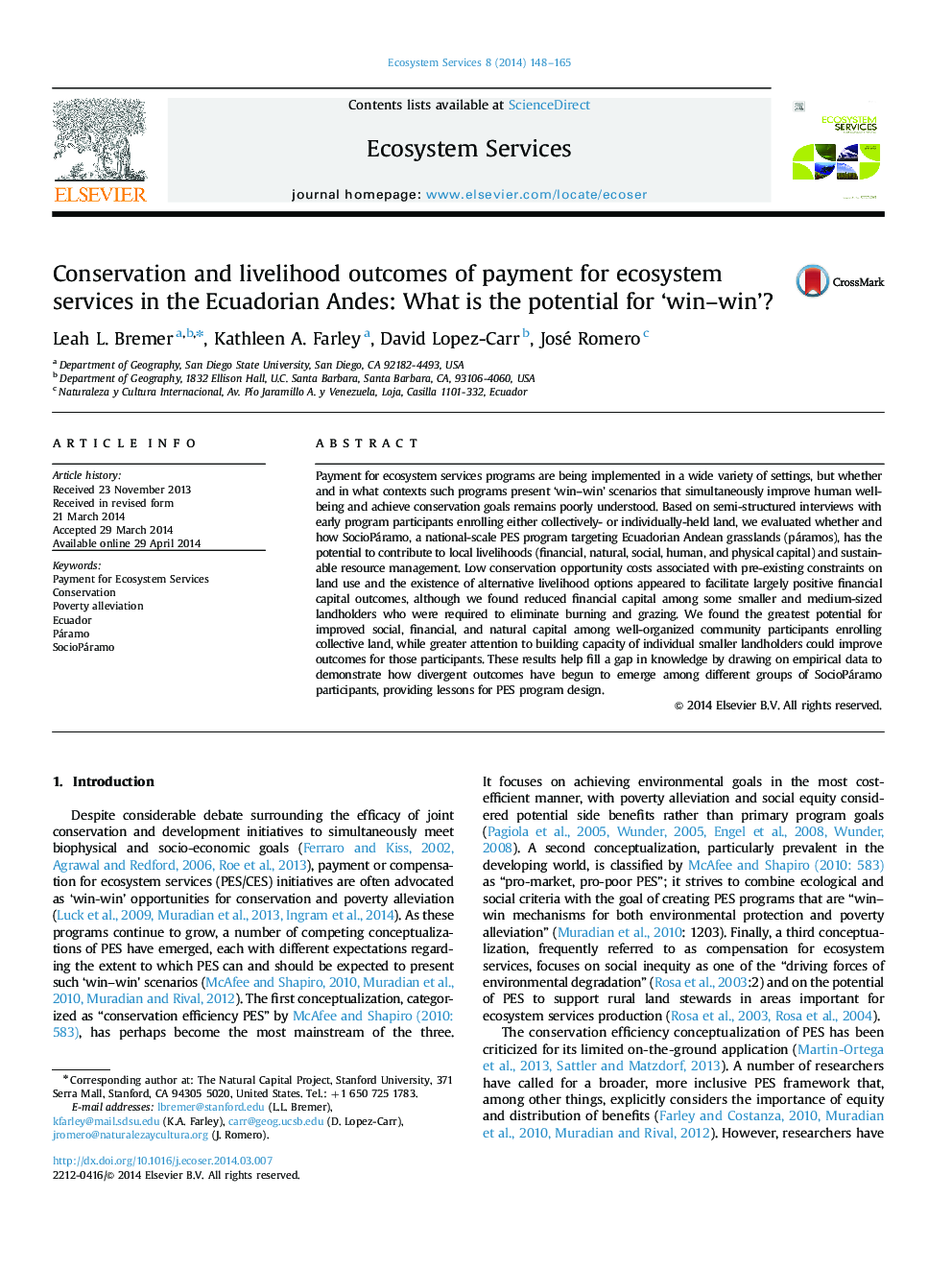| کد مقاله | کد نشریه | سال انتشار | مقاله انگلیسی | نسخه تمام متن |
|---|---|---|---|---|
| 108109 | 161853 | 2014 | 18 صفحه PDF | دانلود رایگان |
• Participation leads to ‘win-win’ or ‘win-settle’ for conservation and livelihoods.
• Outcomes differed among community and individual and small and larger landowners.
• The greatest gains in social capital were among well-organized communities.
• We found “crowding-in” of social norms, enhancing land stewardship capacity.
• Greater attention to building individual smallholder capacity could improve outcomes.
Payment for ecosystem services programs are being implemented in a wide variety of settings, but whether and in what contexts such programs present ‘win–win’ scenarios that simultaneously improve human well-being and achieve conservation goals remains poorly understood. Based on semi-structured interviews with early program participants enrolling either collectively- or individually-held land, we evaluated whether and how SocioPáramo, a national-scale PES program targeting Ecuadorian Andean grasslands (páramos), has the potential to contribute to local livelihoods (financial, natural, social, human, and physical capital) and sustainable resource management. Low conservation opportunity costs associated with pre-existing constraints on land use and the existence of alternative livelihood options appeared to facilitate largely positive financial capital outcomes, although we found reduced financial capital among some smaller and medium-sized landholders who were required to eliminate burning and grazing. We found the greatest potential for improved social, financial, and natural capital among well-organized community participants enrolling collective land, while greater attention to building capacity of individual smaller landholders could improve outcomes for those participants. These results help fill a gap in knowledge by drawing on empirical data to demonstrate how divergent outcomes have begun to emerge among different groups of SocioPáramo participants, providing lessons for PES program design.
Journal: Ecosystem Services - Volume 8, June 2014, Pages 148–165
